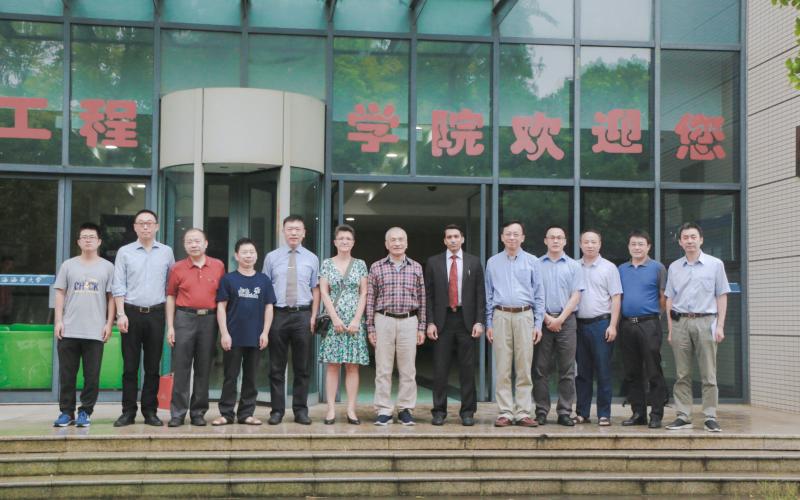KSU Represented at the 11th International Symposium on Information Processing
Prof. Muhammad Khurram Khan, an academic from Center of Excellence in Information Assurance, King Saud University, delivered a keynote speech at the 11th International Symposium on Information Processing (ISIP) that was held in Shanghai (China) from 22-23 September 2018. This symposium was jointly sponsored by several world-class universities namely, Shanghai Maritime University, Peoples' Friendship University of Russia, Feng Chia University Taiwan, South China University of Technology, Fudan University, Providence University, Nanchang HangKong University, Jiangxi University of Science and Technology, and Jiaxing University, China.

The goal of ISIP 2018 was to bring together local and foreign researchers and practitioners from academia, industry, and government to exchange their research ideas and results in the emerging areas of computer science, networks, security, communications, big data, cloud computing, artificial intelligence, and so on.
Prof. Khurram, a professor cybersecurity, was invited to present a keynote speech on the topic of “Security, Privacy and Trust in the Internet of Things” at this overwhelming event, which was attended by a large number of local and international participants. At the outset of his keynote, Prof. Khurram shed light on the fundamental concepts and applications of the Internet of Things, which is changing the way we live, interact and perform businesses in our daily life. Here he mentioned a reference of the wide-spread proliferation and importance of IoT, which alone has created nearly 3000 businesses in the USA with a raised funding of USD 125 billion along with new jobs employment of 342,000 workers, and interestingly 95 of those startups have become unicorns, means Billion dollar startups in very short span of time.
Further in his speech, he discussed that security, privacy and trust are the major stumbling blocks that could hinder the large-scale deployment of IoT systems, which is expected to be 50 billion connected devices by 2020. Here he referred his recently published research, which states, “Consumer trust upon adopting and using IoT is holistic view of a consumer’s behavior, a kind of protection that a consumer can have reasonable security of his devices and data (security), a level of confidence that a consumer can have the knowledge and control of his private data associated with his identity (privacy) and satisfaction of fulfillment of consumers luxurious needs (cost, reputation of vendor, product and off course brand, fashion and trends)”.
Moreover, he further stated by explaining his proposed research model that consumers are more concerned about their privacy in the context of five dimensions of IoT devices, which are borrow, rent, gift, resale, and retire etc, that are unfortunately not considered by the IoT vendors while developing the products. Consequently, those available products on the marketplace harbor a lot of security and privacy challenges for the consumers.
In addition, Prof. Khurram discussed the importance of IoT in the smart cities, which plays a major role to improve quality of life, efficiency of urban operation and services and competitiveness, while ensuring that it meets the needs of present and future generations with respect to economic, social and environmental aspects. Besides, he presented two of his recent research contributions in the context of smart cities for secure and robust smart healthcare and smart transportation for secure railway cloud service.
At the end of keynote, he presented some cybersecurity challenges for the IoT which could emerge from different cyber threat actors e.g. cyber criminals, cyber activists, and nation states, etc.


